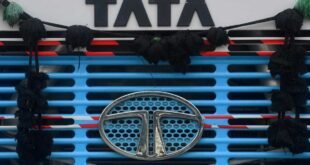The Competitive Landscape of the Automotive Industry
Hungarian Prime Minister Viktor Orbán recently made a striking observation about the competitive nature of different professions. He stated, “Until now, I thought that our profession – that is, that of politicians – was the most competitive one. We are put to the test once every four years and then find out whether we get to stay or it’s goodbye. But seeing the current situation in the automotive industry, I would modify that: the most competitive profession right now is car manufacturing.” This statement came during his visit to Audi’s plant in Győr, where the third generation of the Q3 model was launched.
Orbán was accompanied by Minister of Construction and Transport János Lázár. This marked a significant moment for Audi Hungaria, as high-level dignitaries had not visited the facility in several years. While the event celebrated the launch of a successful model, it also highlighted the challenges facing the automotive industry, particularly at Audi AG. Orbán emphasized the need for European car manufacturers to navigate through these difficult times, pointing out the impact of external factors such as war, energy crises, and bureaucratic challenges from Brussels.
Challenges and Criticisms
The prime minister criticized the leadership in Brussels, stating, “we are faced with serious challenges: war, energy, and Brussels, which, unfortunately, is not run by car factory managers. Instead, it is led by bureaucrats who have no idea what real competition is.” He argued that the European car industry must work together to avoid falling behind, especially when compared to competitors like China. Orbán pointed to the Audi Q3 manufactured in Győr as an example of how Hungarian expertise can achieve world-class standards.
He further stressed the importance of giving the industry and its consumers more freedom, arguing that without this, jobs could be lost. Orbán called for an alliance in Brussels, warning that otherwise, European car manufacturers might “shoot themselves in the foot.”
Economic Impact and Job Security
The automotive industry plays a crucial role in Hungary’s economy, with around 160,000 families nationwide and 50,000 in Győr alone relying on jobs linked to Audi. This includes direct employment and roles within the supply chain. Zoltán Les, director of vehicle management at Audi Hungaria, emphasized that the new models, including the Q3 and Cupra Terramar, are providing secure, long-term jobs for the factory’s 4,000 employees. Michael Breme, Chairman of the Board of Management of Audi in Győr, reiterated that these models would help boost production to peak levels.
However, the situation is not without challenges. Reports indicate that the German automotive industry, including Audi’s plant in Győr, is experiencing a crisis. There have been concerns about job security, with some positions at the engine factory being affected. Despite an agreement reached during the pandemic, not all employees are willing to move to other departments, leading to some opting for early retirement programs.
Production and Future Plans
The world premiere of the third-generation Audi Q3 took place in Ingolstadt, Germany, in mid-June. Breme mentioned that the Győr plant has a production capacity of 185,000 vehicles per year, with plans to reach this level with the Cupra Terramar in three shifts. There were rumors about moving part of the Q3 production to Germany, but Breme clarified that only volumes exceeding 185,000 would be moved. Additionally, body parts for the Q3 will be manufactured in Győr, with lacquer and assembly done in Germany.
Audi Hungaria’s annual press conference in March provided insights into workforce expectations, with officials anticipating similar numbers for the following year. However, there have been changes in the workforce, with some employees transitioning from engine production to vehicle assembly. The company’s annual report showed a slight decrease in employee numbers from 11,663 in 2023 to 11,431 in 2025.
Despite these challenges, the automotive industry remains a vital sector in Hungary, with ongoing efforts to maintain stability and growth.
 Info Malang Raya Its All About World News
Info Malang Raya Its All About World News



